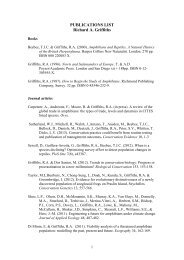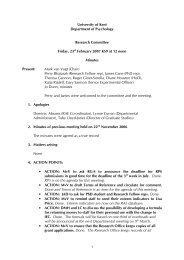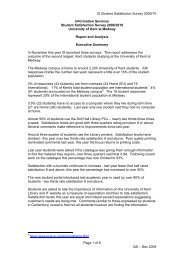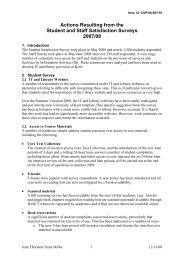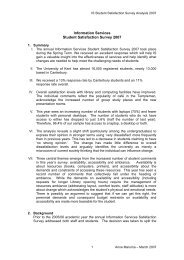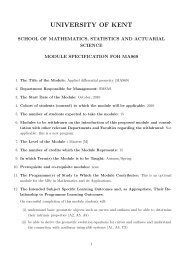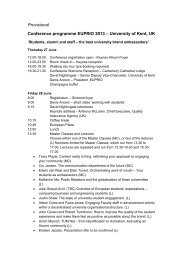cspdf, Job 181 - University of Kent
cspdf, Job 181 - University of Kent
cspdf, Job 181 - University of Kent
Create successful ePaper yourself
Turn your PDF publications into a flip-book with our unique Google optimized e-Paper software.
together with Ismail Cem, the Foreign Minister <strong>of</strong> Greece’s historical enemy,<br />
Turkey. The symbolic significance <strong>of</strong> this act is unambiguous: it demonstrated<br />
that Greece was ready to assume a humanitarian ‘burden’ by sacrificing its<br />
political interests in the altar <strong>of</strong> peace. We will not place this in the context <strong>of</strong><br />
Balkan micropolitics, but in the wider context <strong>of</strong> American global domination:<br />
Papandreou’s involvement in the Olympic Truce aimed to ‘“open the way for<br />
peace in certain regions”. Significantly, in 2003 Papandreou reminded his<br />
audience that the IOC-sponsored initiative [was] being promoted with the full<br />
co-operation <strong>of</strong> the United Nations’ (Greek Embassy, Washington DC, 3<br />
December 2003). Against the bloody background <strong>of</strong> the post-war<br />
reconstruction <strong>of</strong> Iraq, this message is anything but innocent: it ties a<br />
romantic Olympic idea(l) to Realpolitik visions, as Papandreou himself<br />
admitted (ibid.). The whole process unveils the ‘Greek martyr’ as a rather<br />
sharp player in the international political arena.<br />
We can just begin to recognise structural similarities in the<br />
discursive tropes <strong>of</strong> nineteenth-century nationalism, current academic<br />
discourses on Byzantine civilisation, and recent debates upon Greece’s<br />
political identity and role in Europe. The idea that underpins them is<br />
constitutive <strong>of</strong> the Greek cosmology and is informed by a strong<br />
association between giving (giving civilisation, <strong>of</strong>fering services), suffering<br />
(the political rhetoric <strong>of</strong> the ‘burden’ is instructive) and recognition <strong>of</strong><br />
responsibility. In state discourse, the notion <strong>of</strong> giving is rationalised;<br />
contrariwise, academic and nationalist discourses describe unconditional<br />
giving <strong>of</strong> culture in emotional terms. This is congruent with, indeed



